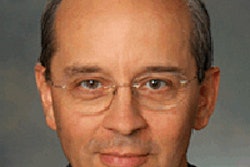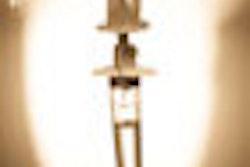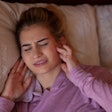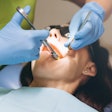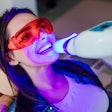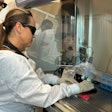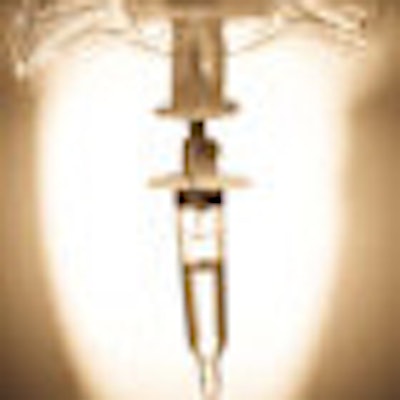
Advocates for dental anesthesiology have embarked on the difficult process of getting it approved as the 10th ADA-recognized specialty.
After a May 4 vote by the Council on Dental Education and Licensure (CDEL) supported the American Society of Dentist Anesthesiologists' (ASDA) request for specialty recognition, the 2012 ADA House of Delegates will decide whether to approve it in October during the ADA Annual Session in San Francisco.
"This is something that should have been recognized decades ago," Steven Ganzberg, DMD, a clinical professor and the chair of dental anesthesiology at the University of California, Los Angeles and president of the American Dental Board of Anesthesiology, told DrBicuspid.com. "The biggest obstacle is misinformation that some are putting forth regarding this specialty. I think this is something that is only going to be positive for dentistry."
But the American Association of Oral and Maxillofacial Surgeons (AAOMS) has reservations about the potential impact of such a designation, according to Arthur Jee, DMD, president of the AAOMS.
"We're concerned that having a specialty in anesthesia would change the dynamics of the dental profession," he said in an interview with DrBicuspid.com.
According to the ADA website, "Specialties are recognized in those areas where advanced knowledge and skills are essential to maintain or restore oral health." The process requires extensive supporting data; for example, the ASDA's application totaled some 600 pages.
Combating misinformation
CDEL's Committee on Recognition of Specialties and Interest Areas in General Dentistry studied the application for a year after it was submitted in June 2011 by Dr. Ganzberg, a past president of the ASDA; Michael Mashni, DDS, current ASDA president; and Joel Weaver, DDS, PhD, also a past president.
— Steven Ganzberg, DMD, president,
American Dental Board of
Anesthesiology
Having met all the necessary criteria, the application passed by a vote of 14-6. Even so, Dr. Ganzberg has concerns about the next step in the process.
"The issue with the House of Delegates is that most of those delegates will never have read the application," he explained. "Unfortunately, while I think a lot of delegates will vote on the merits, it's possible that politics will come into play here. So it's an uncertain vote, whereas all the experts who have reviewed it, carefully, realize that it does meet all the requirements."
Nonetheless, the opinions of the delegates will make or break their application, and the ASDA's supporters are wary of their opposition.
"Now what we're doing is combating misinformation, with one group saying that if anesthesia becomes a specialty, no dentists will be able to do sedation or maybe not even nitrous or local anesthesia because there will be a specialty for dental anesthesiology," Dr. Ganzberg said.
According to Dr. Mashni, making dental anesthesiology a specialty shouldn't negatively affect anyone.
"It would still allow all dentists to continue to do anesthesia," he said. "Most of our guys work with other dentists, so we're not in competition with them. We get called in to help facilitate difficult procedures."
Drs. Mashni and Ganzberg cited myriad reasons for making dental anesthesiology an ADA specialty.
"General anesthesia is the only procedure in dentistry that a dentist is not allowed to do when they graduate from dental school," Dr. Ganzberg said. "They have to have done an accredited residency and get a special permit from the dental board, so it's the only procedure that is that specialized in dentistry."
The designation could also help defend dentists' ability to work with anesthesia.
"It will secure the profession so we can regulate ourselves -- the entire profession, not just dentist anesthesiologists," Dr. Mashni said.
"Medical anesthesiology, nurse anesthesiology, feel that they have more say in what dentists do in anesthesia than dentists," Dr. Ganzberg noted. "In fact, the physician anesthesiologists have come out against oral surgeons doing anesthesia while performing surgery. They have a very powerful voice, saying, 'You're not anesthesia specialists; you're surgeons.' Only if we have a specialty in anesthesiology in dentistry will we have a recognized group that can say, 'Wait a second, in our paradigm, this is an acceptable thing because we have these safeguards in place to make sure it's done effectively and safely for patients.' "
Oral surgeons not a threat
"Is there some type of threat of not being able to do our own anesthesia? We just don't see it," Dr. Jee of the AAOMS said. "We've been practicing for over 150 years. Medicine has been for just as long. Why is it all of a sudden an issue? If medicine were going to come in and affect dentistry, they would stop training us."
Having dental anesthesiology designated as a specialty could actually tilt the balance toward the medical model, where only anesthesiologists may perform anesthesia, he added.
"Medical anesthesiology has not been helpful in teaching anesthesia to gastroenterologists, for example, and we see this model and we're concerned about it," Dr. Jee said.
Supporters of the efforts to make dental anesthesiology a specialty say it will help dentistry better serve patients with increased treatment options. A specialty designation "will help, hopefully, get insurance reimbursement," Dr. Mashni said. "It's amazing to me that there are no issues with anesthetizing a patient for a very simple procedure and yet a 2-year-old child who needs extensive dental work is expected to sit still and suffer through it."
Increased training is another benefit, he added. "One of the biggest things I think it will do is we can get more dentist anesthesiologists in dental schools to train students," he said. "We will increase the training for minimal to moderate sedation and emergency preparedness for all dentists, undergraduate and postgraduate."
Dr. Jee disagreed. "Yes, maybe it will offer more opportunities, but the Commission on Dental Accreditation has a very limited amount of money, with X amount of dollars for X amount of programs," he said. "Training programs come from federal dollars, and there are no federal dollars out there. The issue in our minds is, regardless of the intent, the practicality of the strategic plan may not be there."
While Dr. Ganzberg believes that having anesthesiology become a specialty will increase the number of dental anesthesiologists in every dental school, Dr. Jee questions whether there is enough manpower to accomplish that.
"To date, there are only 200 dentist anesthesiologists in the U.S. and Canada," he said. "Yet they claim they can help with access to care and can lower costs for the general practitioner. But how can 200 people do that? By their own estimates, they anticipate an increase of fewer than 200 in the next five years. They have had 200 anesthesiologists practicing from nine programs in anesthesia for the last decade and that number has been very static."
Dr. Ganzberg noted that by their estimate, there are twice that many densist anesthesiologists in practice.
While confident in its position, the ASDA is concerned about the possibility of its application getting denied at the last hurdle.
"With the misinformation going out there, we're hoping that saner minds will prevail," Dr. Ganzberg said.




